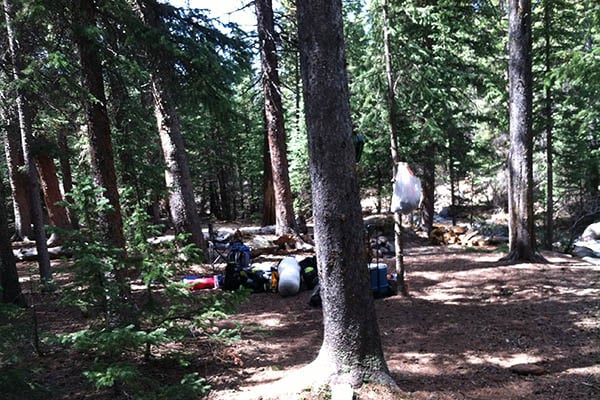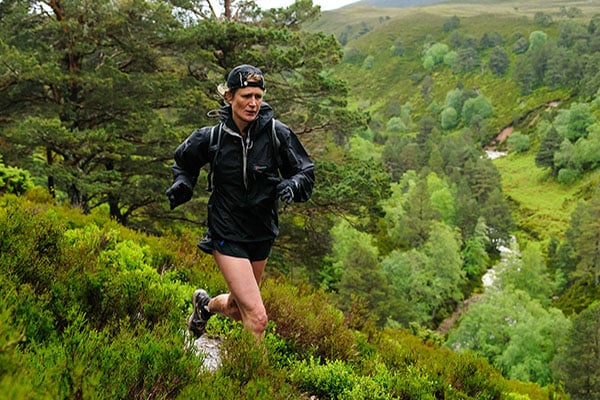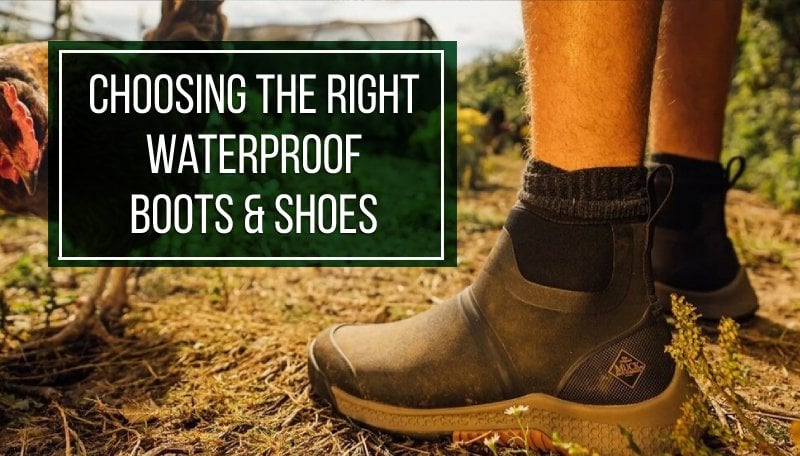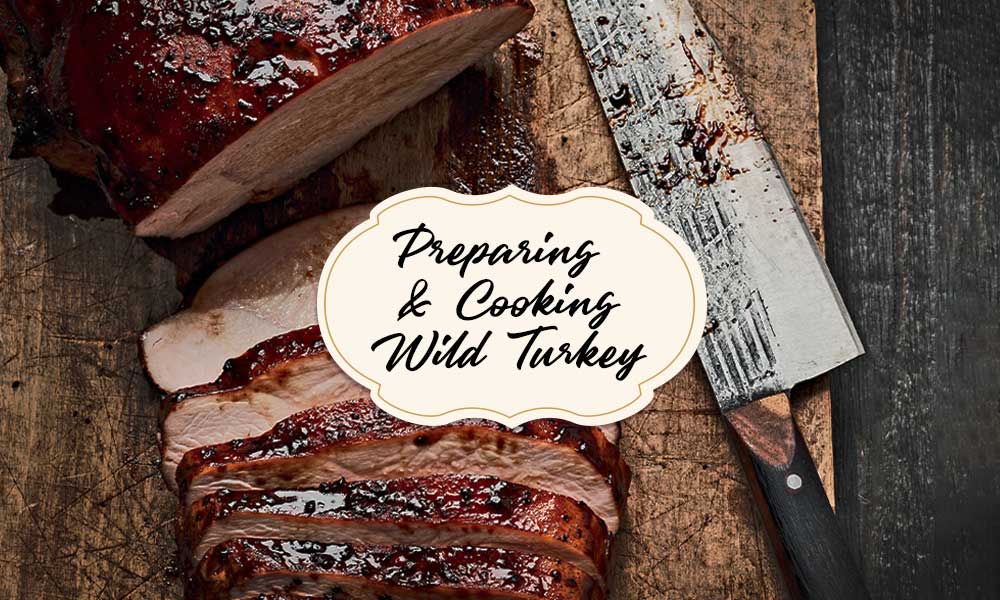Last Updated on
By David Link
On a recent camping trip I started to wonder why some people conduct themselves poorly in the wilderness while others just seem to “get it.” Don’t get me wrong, camping -especially far from civilization – is a great way to unwind and get back to a “wilder” version of yourself, and everyone has their own way of doing it. But others seem to be lost or just simply don’t care about anything when they camp. For most, I think it’s an awareness problem that people only figure out after they’ve camped for a long time.
This all got me thinking, what are some rules I think most should follow when they’re camping? Here’s my take on some of those unwritten rules.
Travel To And From Camp
This first mistake is one I see a lot, especially on winding mountain roads where there aren’t many opportunities to pass vehicles. The person in front of you is intent (or sometimes scared) to go any reasonable speed on the road, and so you and a growing number of vehicles are forced to grudgingly travel 5 mph right behind this Sunday driver. There’s no real issue with their speed, they are allowed to go as fast as they feel comfortable with.
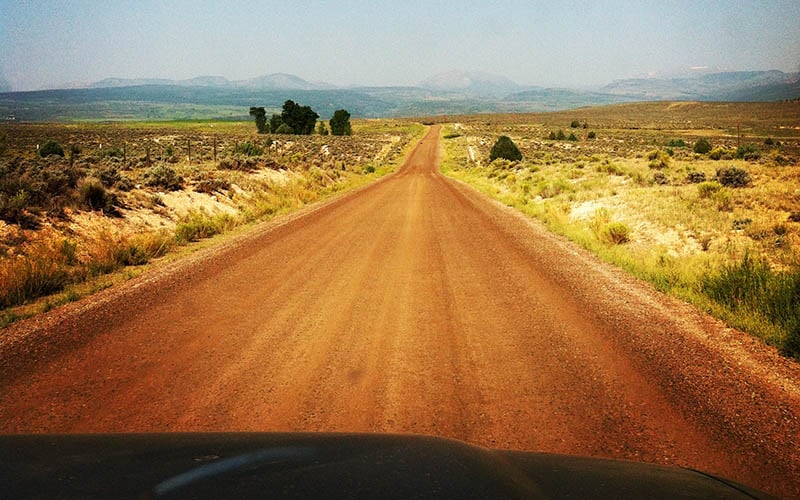
However, the problem arises when the slow driver is presented a chance to take a turn off and doesn’t use it. There it is, an opportunity to give the people behind you the open road and take a very short breather, but instead the slow driver opts to continue along slowly without any consideration for those who are behind them. The slow driver really loses no time at all just pulling off to the side to let others pass, and then they can continue at their speed once the road is free. It’s really a no-brainer, but time and time again I see people ignore the turnoff after a line of traffic forms behind them. So with this said:
Unwritten Rule 1: When on a winding or bumpy rural road, pull off to the side to let faster traffic pass when you can.
Campsite Selection
Once you’re off the main roads and looking for a place to camp, there are a couple considerations to be made about campsites. The first is allowing for some space between you and your neighbors. No one wants another party camping extremely close to where they’ve pitched their tents. It’s great to be friendly to nearby campers, but you don’t want them directly on top of you either. This usually means passing by an area where others are camping and finding your own space. Don’t pull over and ask if you can pitch your tents right by someone else. That just creates an awkward conversation.
Unwritten Rule 2: Give your camping neighbor a decent amount of space so you both can go about your own activities.
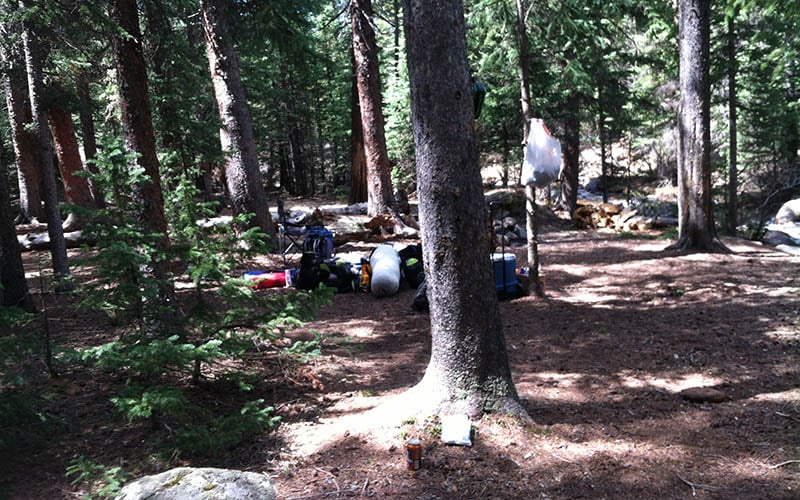
It’s common to see people “stake” or set up a tent to claim a coveted camping spot. It’s kind of a secret method to ensure you have a spot to camp on those busy weekends like July 4th, Memorial Day or Labor Day. I have no problem with it, and what could you really do to change the process? You don’t want people taking numbers or paying for dispersed camping spots, that’s just far too structured and against the spirit of dispersed camping. How do you know the people haven’t been there for days anyway?
Where this does become annoying is when people don’t take much time to stake a spot. I’ve seen people set up one camp chair at a big spot and call it good. In my opinion, that is not a proper “staking” of your camping claim. You need to pitch at least one tent to stake a spot. One last thing, don’t stake more than you need, as you have to share dispersed camping with everyone.
Unwritten Rule 3: At least one tent needs to be pitched to stake a campsite.
Everything In Moderation
Once you’re all set up at camp, it’s time to do whatever you enjoy doing in the great outdoors. For many this means cooking over the campfire, drinking plenty of cold ones and whatever else you want to do. However, there are a couple activities that you should do in moderation, at least around the other campers. The first is riding ATVs, and while dirt roads and camping go hand in hand with ATVs for many, most of your neighbors don’t want to hear you endlessly revving dirt bikes or racing up and down the road by other campsites all day long.
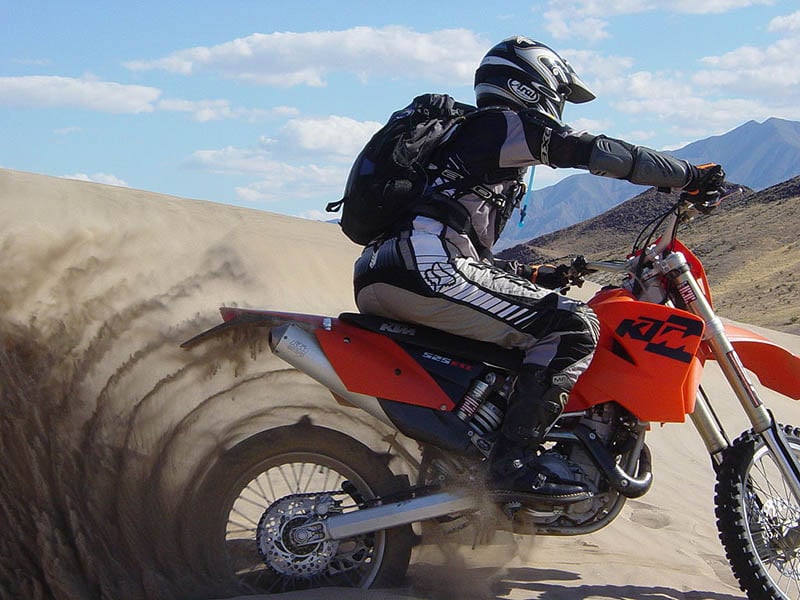
The same goes for those who want to shoot when they camp. It’s fine to fire off a few rounds, and I’d be happy to join you in some plinking or clays. However, it does become a problem when your neighbors are firing off 500 rounds all day long. Worse yet, when you start to hear continuous gun fire, you start to worry if your neighbors are firing into a hillside, or just loosing rounds into the woods they “think” don’t border on anyone’s campsite. Most people did not go camping to hear constant gun shots, but every so often is no big deal.
Unwritten Rule 4: Keep local ATV and firearm use to a happy medium, or travel somewhere less inhabited to do it in excess.
Take Care Of Your Trash
It never fails, people leave junk and trash behind at any established campsite, and they are maybe the worse offenders of all. The most common destination is the fire pit where bottles have been broken and empty beer cans roasted on nights passed. Spent cartridges are also common sights at a frequently used campsite. All these things need to be picked up when you leave, and bottles really don’t belong at a campsite to begin with. Shards of glass can make it into the river beds and other sensitive areas where they don’t belong. If you want to trash something, trash your own yard. Everyone else is tired of picking up after you.
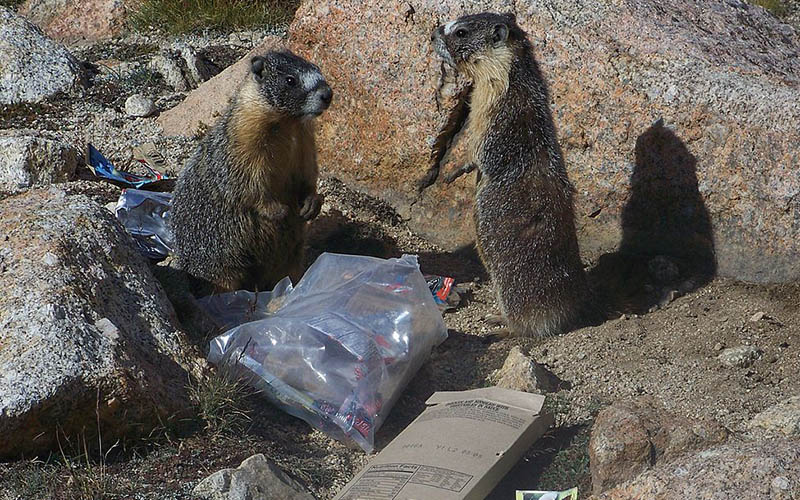
Unwritten Rule 5: Pick up your spent shells and pack out all trash. Also stop being a jerk and smashing bottles into fire pits and around the campsite.
Final Thoughts
If I sound like a humbug, well I can promise you I’m not. I’m cool with most things. America was built on freedom and camping is a place where you can be free to enjoy a lot of things you can’t in the city or town. But when campsites are trashed and abused, it makes them far less appealing as a getaway. Worse yet, the Forest Service or local authorities might decide to shut down camping in your favorite area if things get too bad. So be respectful to others and the camping areas when you head out, and there will be plenty of great trips to come.
